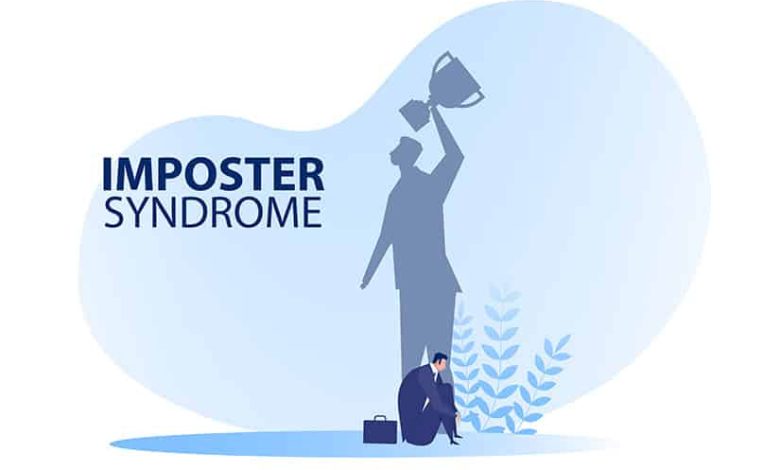
8 TIPS TO REDUCE IMPOSTER SYNDROME

8 TIPS TO REDUCE IMPOSTER SYNDROME
Impostor syndrome is the feeling that you’re not good enough, even though you may have all the qualifications for your job. It’s a common problem for people who are new to their careers and it can affect your confidence, self-esteem, and performance.
10 Signs You May Have Kidney Disease
Here are 8 tips to reduce imposter syndrome:
1. Remember accomplishments

Remembering your accomplishments is a great way to reduce imposter syndrome. In fact, when you’re feeling like you don’t know what you’re doing or that you’re not good enough, think back on the things you’ve accomplished in your life.
You might not think of yourself as a great artist or writer, but did you win an art prize in high school? Did someone tell you they loved your book? Did you write something that made another person cry? The more specific and concrete the memories are, the better chance they’ll have of helping you overcome imposter syndrome.
You have done so many amazing things! You need to remember them all—even if there are some things that didn’t go exactly as planned. The next time you start saying “I’m not good enough,” stop yourself by remembering something big and real that happened for YOU!
2. Get positive feedback from others

One of the best ways to combat imposter syndrome is to get positive feedback from others.
When you’re writing, it’s easy to fall into a cycle of negative self-talk. You think, “This is terrible,” or “I’m not good enough,” or “Nobody’s going to like this.” And then you stop writing.
But here’s the thing: if you don’t get positive feedback from others, how will you know if what you’re writing is actually good?
So when it comes time for you to share your work, don’t just share with your friends and family—share with people who know what they’re doing!
Find someone whose work you admire and ask them if they’d be willing to read what you’ve got so far and give some feedback. If they say yes, listen carefully when they tell you how they felt while reading your piece. If they say no… ask someone else!
3. Celebrate successes

Impostor syndrome happens when you feel like a fraud—like you’re not really qualified for the job or position you have, or that you’ll be found out and everyone will realize it.
You can reduce imposter syndrome by celebrating your successes! When you celebrate a success, it gives you a chance to reflect on what went well and why, which can help you see how much progress you’ve made.
It also helps remind you that others see your value as well—so if anyone ever doubts your abilities, they’re just wrong!
4. Set goals and make plans to achieve them

Impostor syndrome is a phenomenon that can make you feel like you’re not good enough, even when you’ve accomplished a lot. It’s something many people struggle with, but there are ways to overcome it—and get to the point where you’re proud of what you’ve achieved.
The first step is setting goals for yourself and making plans to achieve them. If your goal is to write 100 words per day, then set aside time on your calendar to do that every day, whether or not it feels like the best use of your time at the moment.
Once your goals are set and your plans are in place, take some time every day to reflect on how far you’ve come toward achieving them. Congratulate yourself on what you have accomplished so far! You deserve it.
5. Break down large projects into smaller steps

Have you ever felt like you’re not good enough? Like you don’t belong? Like you’re just fooling everyone?
If so, you’re not alone. Many people struggle with imposter syndrome, especially when it comes to their work. But it’s important to remember that the only way to get past this is to take small steps and move forward.
Here are some tips for reducing your imposter syndrome:
• Break down large projects into smaller steps—it’ll make it easier for you to see progress and feel more confident about what you’re doing.
• Ask for help when needed—don’t be afraid of looking foolish by asking questions or admitting ignorance; people will understand! They probably feel the same way sometimes too!
6. Recognize the value of your work
/What-are-character-strengths-4843090-V1-e50fcdd5797f4e629ad73cd61847727a.gif)
I know, I know. It can be tough to step back and recognize how much value you bring to the table. But trust me on this one: your work is valuable.
You may not feel like it, but you bring a lot to the table. You are an expert in something—even if it’s just your own passions or interests! And you’ve figured out how to use that knowledge in a way that benefits others.
That doesn’t just happen overnight! You put in the time and effort to learn what others don’t know, take the time to practice doing things better than anyone else has ever done them before…and then share it with everyone who needs your help.
So when people tell you that they don’t understand why they should pay attention? Don’t take it personally! They’re just not seeing what we see—namely all of the hard work that goes into being an expert at something and sharing it with others.
7. Don’t compare yourself to others in your field—you’re unique!

It’s easy to get caught up in comparing yourself to other people in your field, but it’s important to remember that everyone has their own strengths, weaknesses, and motivations.
While you may love working with children and want to help them grow into healthy adults, another person might be passionate about teaching kids how to play football or learn the correct spelling of a word.
The key is finding what motivates you and pursuing that passion with everything you’ve got!
8. Focus on improving yourself rather than comparing yourself with others
/link-between-social-media-and-mental-health-5089347-color-withtext-54a445186bb44974b059ac7b6494bcdf.gif)
The Impostor Syndrome is the feeling that you’re not as good as your peers, even though your work is excellent. It’s a common problem for many people in the tech world, but it’s also one that can be easily managed.
In order to reduce imposter syndrome, focus on improving yourself rather than comparing yourself with others.
You’ll feel better about your work when you’re constantly learning and growing, and there are lots of ways to do this: take classes, read books, or join meetups with other techies who are at similar levels as you.
By focusing on your own development instead of worrying about what other people think of your work, you’ll be able to reduce imposter syndrome and build confidence in yourself!
You’ll feel better about your work when you’re constantly learning and growing, and there are lots of ways to do this: take classes, read books, or join meetups with other techies who are at similar levels as you.





